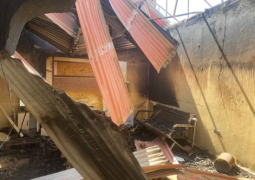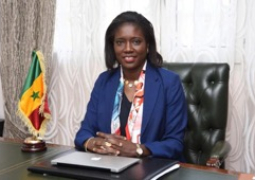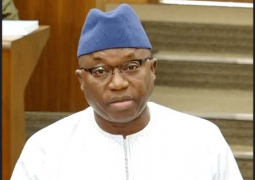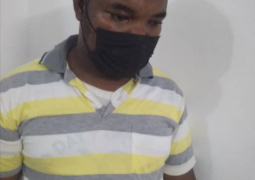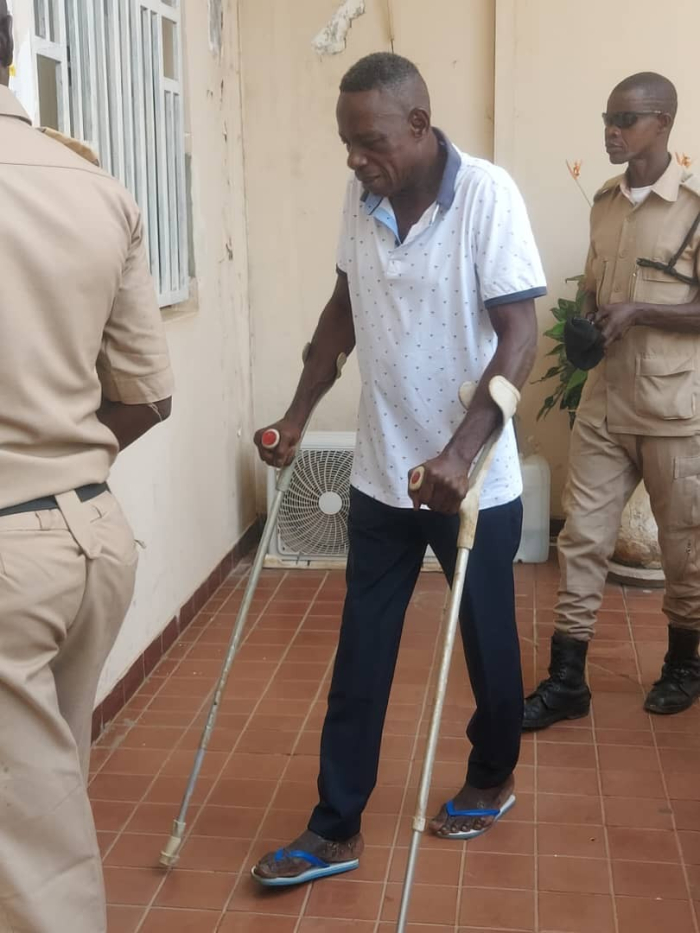
The application was supported by a 14-paragraph affidavit sworn by Isatou Jaiteh of Wallingara, West Coast Region, on 1 October 2025 in Banjul. Four exhibits were attached to the affidavit, marked as Exhibits A.S.1 to A.S.4.
According to court documents, Mr Sanyang’s counsel, Lamin J. Darboe, submitted that his client’s health had visibly deteriorated while in state custody and that the prison system lacked the requisite facilities to provide adequate medical care. Counsel Darboe urged the Court to prioritise the applicant’s actual medical condition over theoretical assumptions about the capacity of public institutions. He emphasised that the psychiatric report recommended bail for continued treatment and that Mr Sanyang’s physical state demonstrated the practical inadequacy of treatment within the prison system.
The State, represented by Counsel S.L. Jobarteh, opposed the application and filed a 10-paragraph affidavit in response, sworn by Kaddijatou Bah, a legal clerk at the Attorney General’s Chambers, on 8 October 2025. The State argued that Mr Sanyang’s conditions were stable, manageable, and not life-threatening. Counsel Jobarteh relied on a medical report from Edward Francis Small Teaching Hospital (EFSTH), which confirmed that all necessary medical facilities and treatments were available in The Gambia.
After hearing arguments from both sides, the Court determined that C.S.P. Yusufa Jabang is a prison officer attached to the Medical Unit at Mile 2 Central Prison and not a qualified medical practitioner employed in a government hospital. Consequently, the Court ordered the Chief Medical Director of EFSTH to conduct a comprehensive medical examination of Mr Sanyang and certify whether adequate medical facilities were available to treat his illness while detained at Mile 2.
This order was duly complied with. Dr Mustapha Bittaye, Chief Medical Director of EFSTH, appeared before the Court, presented the medical report, and clarified its contents in open court. Dr Bittaye testified regarding Mr Sanyang’s medical and psychiatric conditions, interpreting reports from EFSTH, specialist consultants, and Tanka Tanka Psychiatric Hospital.
According to the neurosurgical report, Mr Sanyang had undergone a posterior lumbar interbody fusion of the LAL-5 vertebrae, with four screws inserted. He suffers from severe stenosis and was advised to avoid prolonged sitting, standing, or lifting heavy objects.
In his ruling, Justice Jaiteh noted that the determination of the application hinged on whether Mr Sanyang had established exceptional circumstances warranting bail on medical grounds. The Court held that the statutory threshold under Section 125(1) and (2)(a) of the Criminal Procedure Act 2025 had not been met, as there was no medical certification from a government practitioner attesting that Mr Sanyang’s conditions could not be adequately treated within the detention facilities or locally.
The Court concluded that while Mr Sanyang suffers from legitimate health challenges, the absence of a medical certificate explicitly stating that treatment is unavailable in detention was fatal to the application. The Court therefore refused to grant bail, citing that Mr Sanyang had not demonstrated exceptional circumstances as required under Section 125 of the Criminal Procedure Act 2025. Justice Jaiteh emphasised that the statute requires a medical certification of unavailability of adequate treatment—not merely a general opinion on the prison environment.


